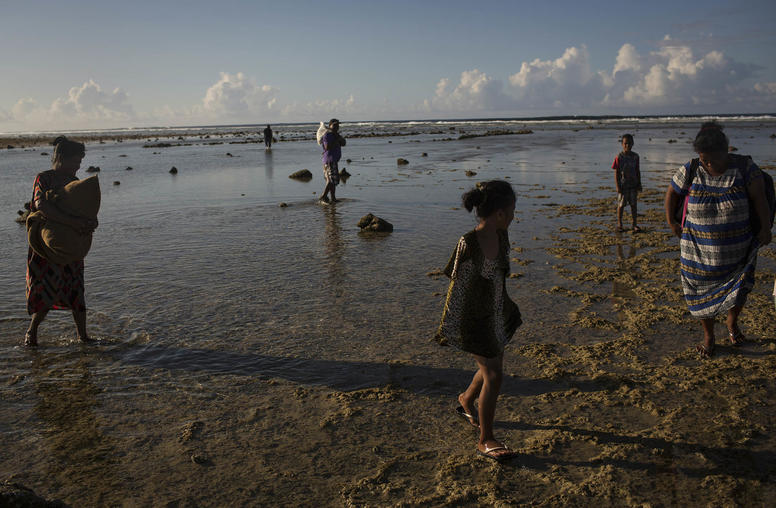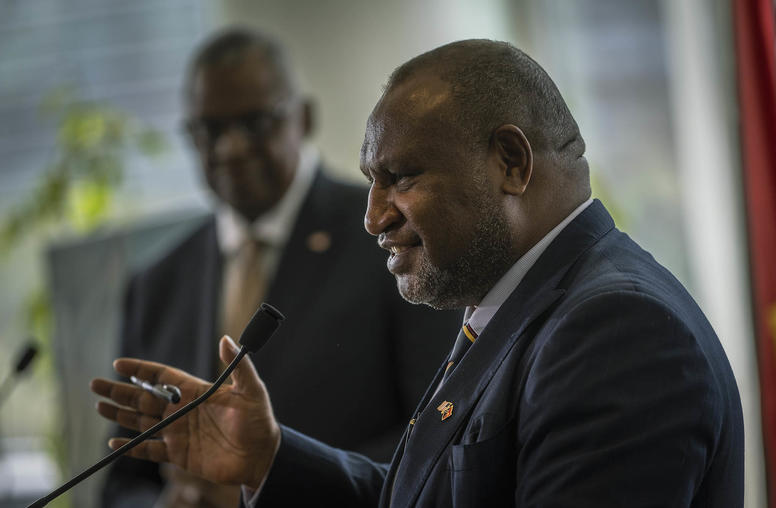Question And Answer
Publications
Articles, publications, books, tools and multimedia features from the U.S. Institute of Peace provide the latest news, analysis, research findings, practitioner guides and reports, all related to the conflict zones and issues that are at the center of the Institute’s work to prevent and reduce violent conflict.

China’s Alternative Approach to Security Along the Mekong River
Speaking about “the rise” or the “emerging role” of the People’s Republic of China (PRC) makes little sense these days. The country is no longer simply transforming in a major power, but rather has achieved a level of influence that many other major countries around the world perceive as a threat economically, politically and militarily.

Sometimes the Good Guys Win: Five Lessons from Guatemala’s 2023 Election
When Bernardo Arévalo won the presidency last year, it left Guatemala’s corrupt old guard reeling. Arévalo and his anti-corruption Semilla Movement posed a direct threat to the power of Guatemala’s “pacto de los corruptos” — an alliance of government officials, politicians, prosecutors, judges, party financiers, state contractors and some wealthy families. The pact mobilized to overturn the election results. But Guatemala’s civil society, backed by U.S. and broader international support, was able to uphold the elections and advance democracy in the Central American nation.

Ukraine’s New U.S. Lifeline: Why It’s Vital and What’s Next
This week’s U.S. approval of nearly $61 billion in funds for Ukraine’s defense is a lifeline in the Ukrainians’ struggle against Russia’s unprovoked invasion and the assault on peace and rule of law in Europe and beyond. Ukrainian troops have been rationing ammunition, their lack of defensive missiles has exposed Ukrainian cities to Russian aerial attacks — and many military analysts predicted a probable collapse on part of Ukraine’s eastern defensive lines. While this U.S. action boosts Ukrainians’ capacities and morale, ending this war will need further funds, forces and security measures for those fighting and suffering for their survival — and for the redemption of international peace through rule of law.

Stability in West Africa: Working With Nigeria’s State Governments
As coups and other setbacks have stymied military-led efforts to stem upheavals in West Africa and the Sahel, a potent new constituency of leaders has just gathered to plan nonviolent strategies to stabilize their own core area of the region: northern Nigeria. In West Africa’s demographic giant, economic crisis is exacerbating intercommunal conflicts, crime and other violence — and Nigeria’s federalism gives vital roles to its states in addressing roots of these problems. Ten recently elected state governors gathered in Washington last month with peacebuilding and development experts, business leaders and senior U.S. officials; they resolved to strengthen and coordinate state-level stabilization strategies — an initiative that international partners should support.

For the Marshall Islands, Nuclear Remembrance Day Is a Painful Reminder
Between 1946 and 1958, the United States detonated 67 nuclear and thermonuclear weapons in the Marshall Islands, a legacy that is commemorated today on the 70th anniversary of the Castle Bravo hydrogen bomb test. This nuclear legacy still reverberates in the Marshall Islands today, straining its relationship with Washington and creating a fissure that Beijing is exploiting as it seeks to increase its regional influence.

Why the Pacific Islands Is Seeing a Rise in ‘Defense Diplomacy’
As strategic rivalry between China and the United States has intensified in recent years, the Pacific Island region has become a key arena for this geopolitical competition. Pacific Island countries are receiving more bilateral visits, new diplomatic missions, increased media attention and offers of development and security assistance from a greater number of states outside the region than ever before.

Riots in Papua New Guinea Are a Warning: Urgent Change is Needed
Riots erupted in Papua New Guinea's capital yesterday, laying bare the hollowness of governance that is failing to meet public needs, thus risking deeper violence and instability. U.S attention to the Pacific Islands' largest and most populous nation is increasing, partly because it is an arena for geopolitical competition with China. While Papua New Guinea's leaders are good at rolling out the red carpet for visiting partners, the state fails lamentably in providing basic services for its people. This week’s violence is a wake-up call for U.S and international policymakers to re-focus on this root of the country’s instability.

China’s Edge in the Pacific Islands: Xi Jinping Makes Time for Leaders
If the U.S. government wants an edge over China in the Pacific Islands, it needs to facilitate more meetings between the president of the United States and regional leaders, preferably one-on-one. When Pacific Island leaders fly to Beijing, they often have a one-on-one meeting with Chinese President Xi Jinping, but such a meeting between the leader of a Pacific Island country and a sitting president of the United States has never taken place. The White House has only conducted joint meetings with Pacific Island leaders. Sometimes even joint meetings don’t make the cut.

At the Sahel’s Center, Tension Rises Over Chad’s Disputed Election
A disputed presidential election in Chad last week is making few global headlines, but poses new risks to African and international efforts to reverse the Sahel region’s spreading instability, conflict and human displacement. Chad is centered in the world’s largest belt of military rule: six nations across Africa that have suffered armed coups since 2020. Among them, Chad is the first to hold elections to restore civilian rule. But a string of setbacks to a fully credible vote has yielded a contested result that risks further domestic conflict and a narrowing of popular legitimacy for the next government, led by the incumbent transitional president, Mahamat Idriss Deby.

The Taliban’s Attacks on Diversity Undermine Afghanistan’s Stability
Each year, the U.N. International Day of Living Together in Peace reminds us that true, sustainable peace is achieved not simply by eliminating war, but rather by building tolerance, inclusion, understanding and solidarity among and between communities.